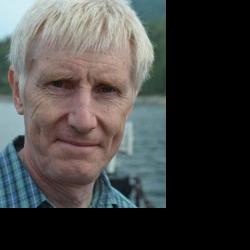Graham Burton is a reproductive biologist recognised for his research into the development of the human placenta. Initially trained in medicine at the Universities of Cambridge and Oxford, he pursued basic research at Cambridge where he is Mary Marshall and Arthur Walton Professor Emeritus of the Physiology of Reproduction. His team identified that the human placenta initially develops in a protective low-oxygen environment supported by the secretory lining of the uterus. Only once the embryo's major organ systems have differentiated does the placenta gain a blood supply from the mother. Graham has also shown how aberrations in establishing the placenta lead to later complications of pregnancy, ranging from miscarriage to pre-eclampsia.
Graham's contributions have been recognised by several international prizes, including the FEDERA award from the Dutch Federation of Medical Scientific Societies and the Anne McLaren Distinguished Scientist Award from the Society for Reproduction and Fertility. He was elected Fellow of the Academy of Medical Sciences in 2011, and elected Fellow of the Royal Society in 2022. He was founding Director of the Centre for Trophoblast Research at the University of Cambridge.


